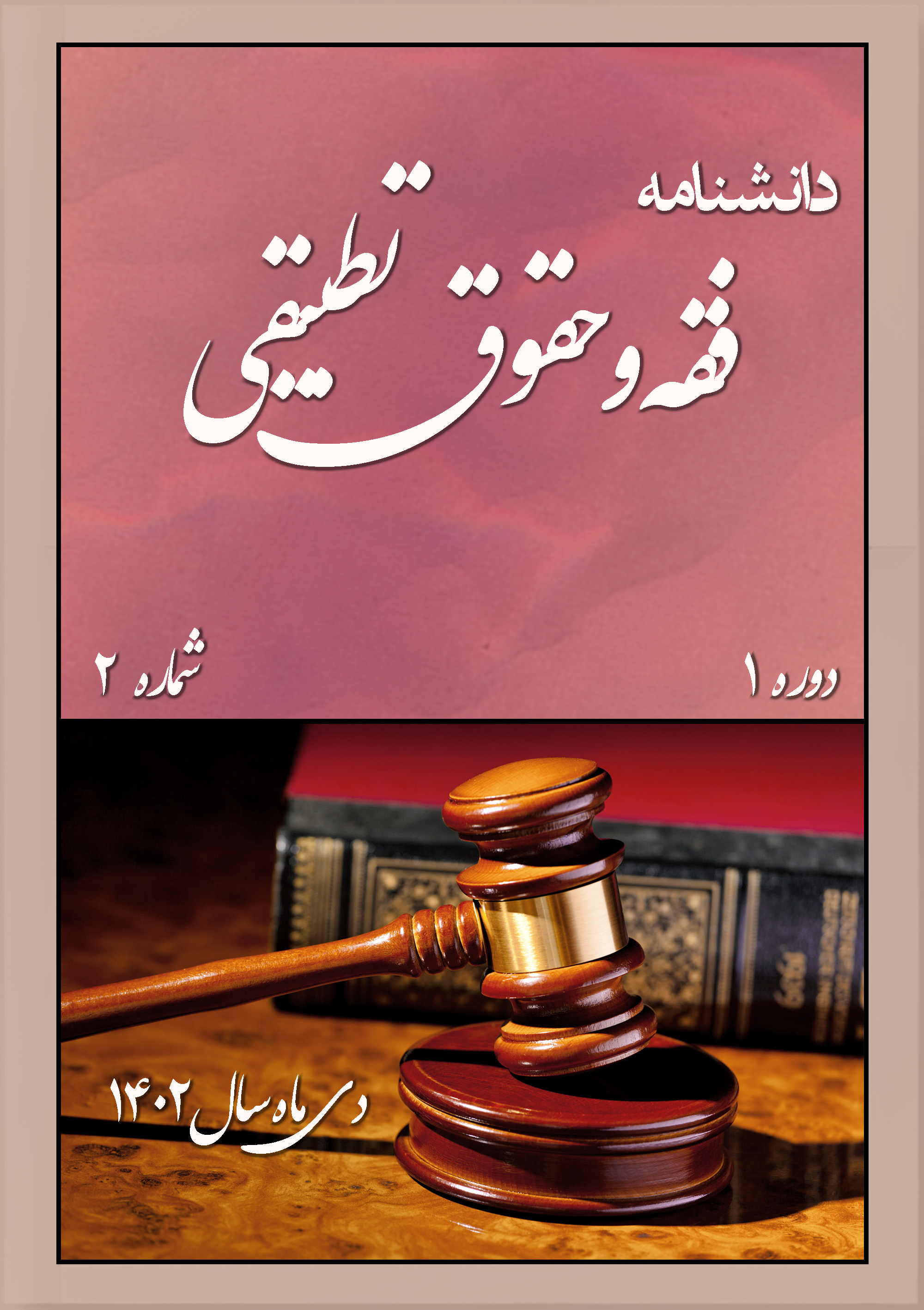هکتیویسم: فرصتها و چالشهای حقوق بشری از منظر فقه اسلامی
کلمات کلیدی:
هکتیویسم, حقوق بشر, فقه اسلامی, فضای سایبرچکیده
این مقاله به بررسی فرصتها و چالشهای حقوق بشری ناشی از پدیده هکتیویسم از منظر فقه اسلامی میپردازد. هدف، ارائه چارچوبی فقهی برای ارزیابی این نوع فعالیتها و تأثیرات آن بر حقوق بشر است. تحقیق حاضر با روش توصیفی-تحلیلی و با استفاده از منابع کتابخانهای، شامل متون فقهی، حقوقی، و مقالات مرتبط با هکتیویسم انجام شده است. هکتیویسم میتواند به عنوان ابزاری برای افشای مظالم و دفاع از حقوق پایمال شده در نظر گرفته شود که با اصول کلی امر به معروف و نهی از منکر در فقه اسلامی همخوانی دارد. با این حال، روشهای مورد استفاده در هکتیویسم، مانند نقض حریم خصوصی و ایجاد اختلال در سیستمها، چالشهای جدی اخلاقی و حقوقی ایجاد میکند که نیازمند بررسی دقیق فقهی است. اقدامات هکتیویستی، با ماهیت دوگانه خود، چالشهایی را برای نظام حقوق کیفری بینالمللی ایجاد میکند، زیرا غالباً مرزهای بین قانون و جرم را کمرنگ میکند. این دوگانگی، پرسشهای اساسی در مورد مشروعیت، مسئولیت اخلاقی و قانونی، و نحوه برخورد با این پدیده از منظر حقوق بشر و فقه اسلامی را مطرح میسازد.
دانلودها
مراجع
Broussard, M. (2018). Dark matters: On the ontology of cybernetic objects. MIT Press.
Brown, A. (2019). Digital property rights and cybercrime. Tech Publications.
Castells, M. (2012). Networks of outrage and hope: Social movements in the Internet age. Polity Press.
Chen, L. (2018). Sovereignty in the digital age: Cyber interference and international law. Global Press.
Davis, R. (2022). The ethics of hacking and data manipulation. Cyber Ethics Publishing.
Denning, D. E. (2001). Activism, hacktivism, and cyberterrorism: the internet as a tool for influencing foreign policy. In J. Arquilla & D. Ronfeldt (Eds.), Networks and Netwars: The Future of Terror, Crime, and Militancy (pp. 239-288).
Eslami, A. (2014). The Method of Courts' Jurisdiction in Adjudicating Cybercrimes. Journal of Justice Legal Affairs, 78(88), 37-64.
Fletcher, R. (2014). Cyber activism: The politics of the internet. In C. de Vreese, C. R. Berger, & S. J. Ball (Eds.), The international encyclopedia of political communication (pp. 1-11). John Wiley & Sons, Inc.
Hajjarian, P. R. (2019). An Examination of Mens Rea in Different Types of Crimes in Islamic Jurisprudence and Iranian Law. Quarterly Journal of Iranian and International Comparative Law, 12(44), 93-119.
Hedayati Fakhr Davoud, A. (2009). Usul-e Akhlaq-e Ejtemaei-ye Eslam az Manzar-e Imam Khomeini (r.a.). Institute for Compilation and Publication of Imam Khomeini's Works.
Hosseini, A. A. (2021). A Critique on the Validity of the Rule "Preventing Corruption Takes Precedence Over Attracting Benefit". Fiqhi and Usuli Researches, 7(23), 7-40. https://doi.org/10.53315.2020.jrj/22034.10
Jamali, R. (2024). A Comparative Study of Cyber Laws in China, the United States, and Russia: Necessities and Requirements for the Cyber Security of the Islamic Republic of Iran. Quarterly Journal of Defense Logistics and Technology, 7(3), 77-108.
Jordan, T. (2004). Hacktivism and Cyberwars. Routledge. https://doi.org/10.4324/9780203490037
Karagianopoulos, V. (2018). Living with hacktivism: From conflict to symbiosis. In T. J. Holt & M. H. M. M (Eds.), Digital activism (pp. 97-114). Springer. https://doi.org/10.1007/978-3-319-71758-6
Krotofil, A. (2018). The politics of hacktivism. In Digital activism (pp. 97-114). Palgrave Macmillan, Cham.
Lee, S. (2021). Misinformation and disinformation in the digital landscape. Media Studies Publishing.
Li, X. (2013). Hacktivism and the first amendment: drawing the line between cyber protests and crime. Harvard Journal of Law & Technology, 27.
Majlisi, M. B. (2003). Bihar al-Anwar (Vol. 67). Dar Ihya' al-Turath al-Arabi.
Makarim Shirazi, N. (1999). Al-Madkhal fi Ilm al-Usul. Madrasat al-Imam Ali ibn Abi Talib Publications.
Miller, D. (2020). Understanding DDoS attacks: Impact on freedom and access. Network Security Books.
Musiani, F. (2015). Hacktivism: A new frontier in political activism. In The handbook of digital politics (pp. 275-287). Oxford University Press.
Nazari Tavakkoli, V. (2021). A Jurisprudential Analysis of Hacking Information Systems. Researches in Islamic Jurisprudence and Law, 17(66), 226-251.
Owen, T. (2017). Hacktivism: The digital age of protest. In The Routledge handbook of protest movements (pp. 375-388). Routledge.
Pahlevani, M. T. (2012). Challenges and Opportunities in Cyber Criminology. Semanan Law Enforcement Science Quarterly, 2(6).
Pourghahramani, B. (2021). A Conceptual Model of Criminal Policy for Cybercrimes in Iran. NAJA Strategic Studies Quarterly, 6(20), 129-154.
Solomon, R. (2017). Electronic protests: Hacktivism as a form of protest in Uganda. Computer Law & Security Review, 33, 718-728. https://doi.org/10.1016/j.clsr.2017.03.024
Svensson, J. (2017). Hacktivism and its political implications. Global Jurist, 17(1), 1-21.
Wall, D. (2007). Cybercrime: The interrogation of the digital offender. In The Blackwell companion to Criminology (pp. 349-363).
Wang, F. (2022). Freedom of speech in the internet age: Responsibilities and misuses. Communication Studies Press.
Weber, R. (2014). Legal aspects of computer crime. In The Cambridge handbook of the hacker ethic and the Internet (pp. 209-228). Cambridge University Press.
دانلود
چاپ شده
ارسال
بازنگری
پذیرش
شماره
نوع مقاله
مجوز
حق نشر 1403 نسرین امامی, هما داوودی گرمارودی, بتول پاکزاد (نویسنده)

این پروژه تحت مجوز بین المللی Creative Commons Attribution-NonCommercial 4.0 می باشد.










